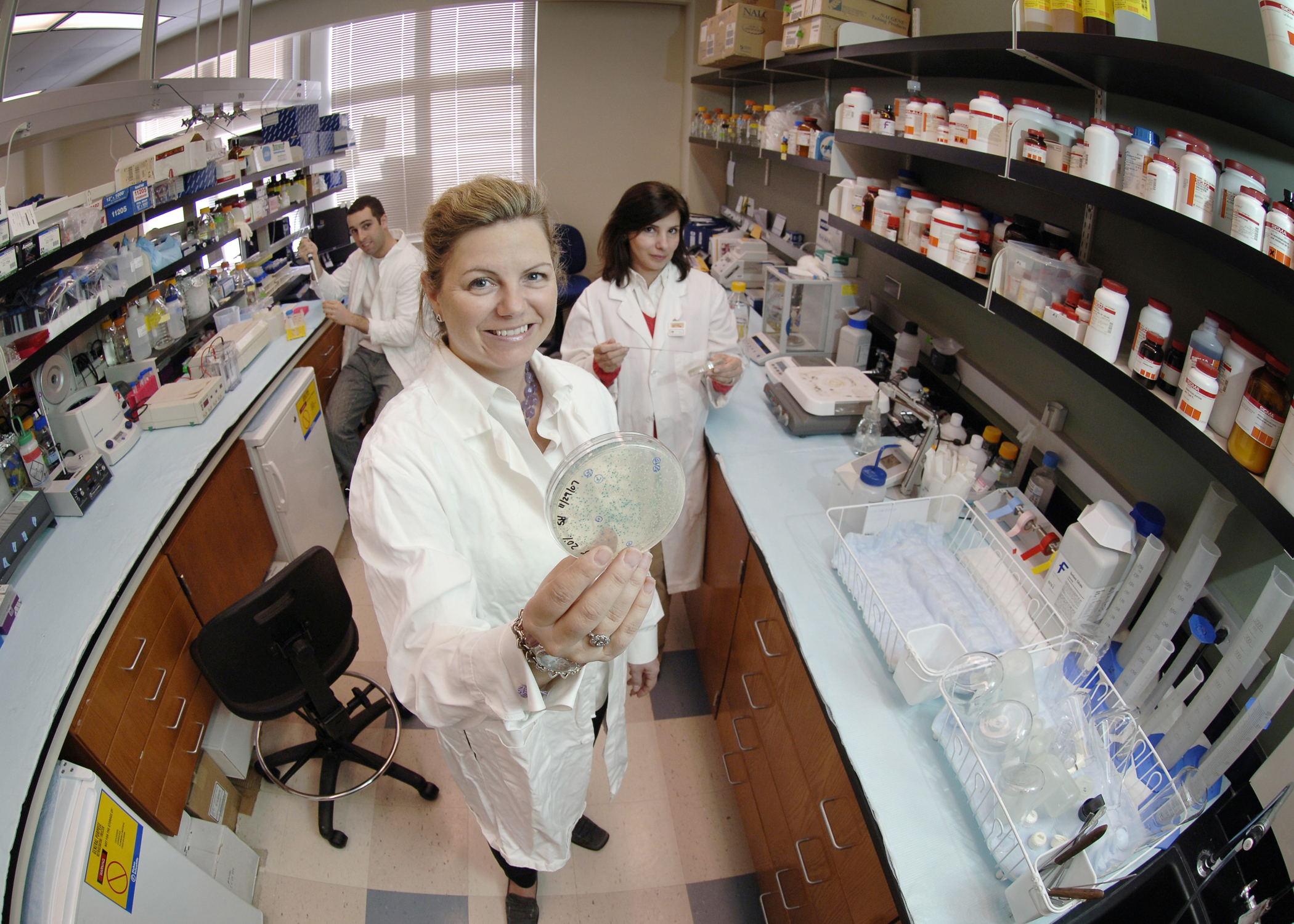Students Can Collaborate With Faculty, Industry Partners On Research Projects
If you are interested in biomedical school, or in a career focused on innovative technologies in the life sciences, two new UNC Charlotte graduate certificates can help you meet your goals.
The Department of Biological Sciences has developed graduate certificates in biomedical sciences and in biotechnology, in response to growing student and societal needs.
“The world’s critical need for biomedical professionals is driving a demand for biotechnology and biomedical professionals,” said Christine Richardson, chair of the Department of Biological Sciences and graduate program director for the certificates. “With these graduate programs, students will gain the academic and research experience they need to prepare them to make an impact in related fields. In addition to classroom experiences with engaged faculty, students will conduct timely research with engaged faculty and with industry representatives in some cases.”
The world’s critical needs continue to drive the demand for biotechnology and biomedical professionals.
The deadline for applying for the Fall 2020 semester for these certificates has been extended to Aug. 15, due to a change in the UNC Charlotte academic calendar in response to COVID-19.
Biomedical Sciences Certificate
The Biomedical Sciences Certificate will provide students with core competencies or exposure to biomedical sciences to prepare them for professional biomedical schools, such as medical, veterinary or dental schools. Students also have the opportunity to work one-on-one work with a faculty member in an area of interest. They will choose from course offerings in the areas of:
- anatomy and physiology
- biochemical principles and metabolic pathways
- microbiology, immunology, and infection
- embryology, cell biology, and development
Biotechnology Certificate
The Biotechnology Certificate will offer a multi-disciplinary program designed to combine advanced biotechnology course work with activities that develop communication and technical skills that are highly valued by employers in the biotechnology industry. Students will gain practical experience through internships in laboratories on campus or in local industry. A seminar series will cultivate an awareness of ethical, policy, and management issues related to the biotechnology industry.
In addition, certificate students will be able to transfer credits into the UNC Charlotte master of science and doctoral degrees in biology, if their career goals change.
Students with a wide range of needs can access what they need to succeed through these flexible programs.
“The certificate programs are designed in a flexible way to help students with a variety of goals, even as those goals may evolve,” Richardson said. “They can broaden students’ competitiveness for jobs, or prepare them for professional admissions exams such as the MCAT and entrance into programs. Students also will benefit from networking with professionals in biomedical and biotechnology fields to build relationships and find opportunities.”
Given that certificates are not degree programs and are intended to provide streamlined educational opportunities, standardized test scores, such as the GRE, GMAT, or MAT, are not required for admission. The UNC Charlotte Graduate School has more information on the application process, while the Biological Sciences Department has more information on the two certificates.
Words: Lynn Roberson, College Communications Director
Image: Christine Richardson, chair of the Biological Sciences Department, is eager to welcome new graduate certificate students to the department. (Image shows Richardson and previous lab team members.)









